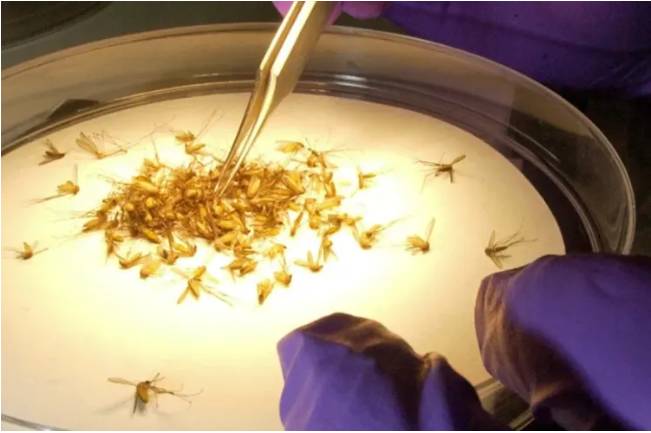“Alert for Outbreak of Deadly “Eastern Equine Encephalitis” in North America
North America is currently facing a serious health crisis -- an outbreak of Eastern Equine Encephalitis.
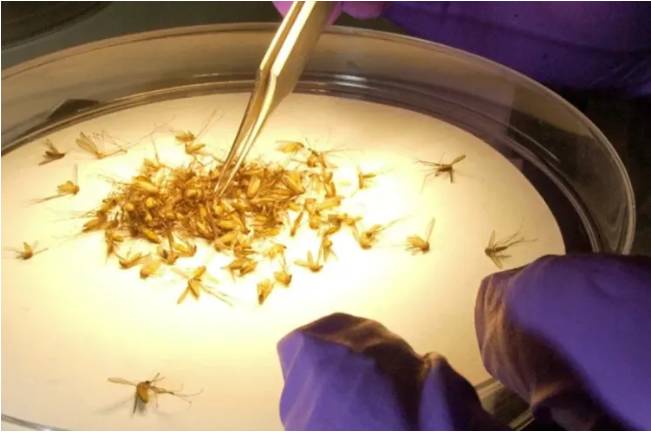
Image Source: Sourced from the Internet
Rare cases of Eastern Equine Encephalitis (EEE) have been reported in the northeastern United States, with a mortality rate as high as 30%. To stop the outbreak from spreading further, a nighttime closure has been in effect since August 21 in four high-risk towns in Worcester County in central Massachusetts: Douglas, Oxford, Sutton, and Webster.
The Massachusetts Department of Public Health has confirmed the state's first case of eastern equine encephalitis since 2020 in a man from the town of Oxford. The man is currently in the hospital fighting a tenacious battle with the virus, and his family has contacted the government. Moreover, mosquitoes have been detected carrying the virus throughout the state, so residents are strongly urged to strictly adhere to the lockdown.
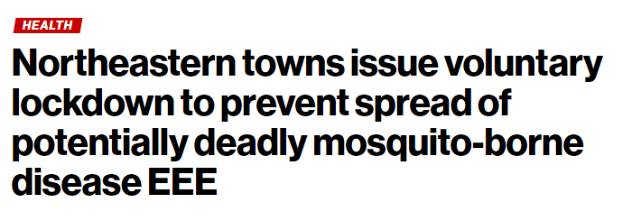
Worryingly, there is no vaccine or specific treatment for Eastern Equine Encephalitis. The CDC pointed out that although Eastern equine encephalitis is rare, once infected, the condition is extremely serious, patients will have fever, headache, vomiting, diarrhea and seizures, etc., and about 30% of infected people will lose their lives. The Massachusetts government also emphasizes that even those who survive the disease tend to be disabled for life, with very few making a full recovery.
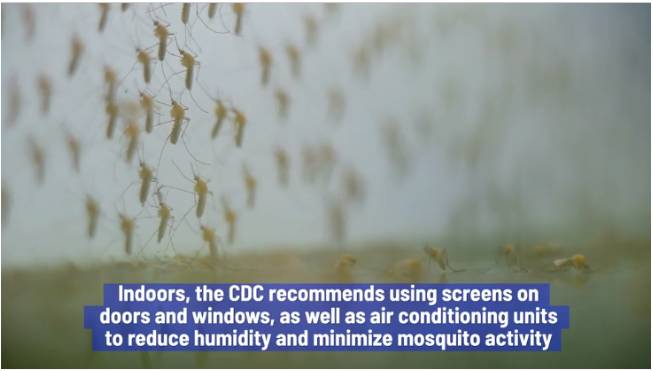
Image Source: Sourced from the Internet
Eastern equine encephalitis (EEE) is a mosquito-borne zoonotic infection caused by the Eastern equine encephalitis (EEE) virus, which is prevalent in the eastern United States as well as some countries and regions in Central and South America. The virus is naturally transmitted primarily between black-tailed race mosquitoes and avian hosts, and does not spread directly from person to person or person to horse; people and horses are primarily infected with the virus through the bites of several other mosquitoes, including Aedes aegypti and Culex aegypti. By analyzing the mosquito vector surveillance data in 2019, the researchers found that the density of black-tailed race mosquitoes in the northeastern United States that year and the amount of their virulence were significantly higher than in previous years, which was a key factor leading to the outbreak of the disease. Based on this, the researchers constructed a mathematical model that was able to predict the epidemiology of eastern equine encephalitis based on mosquito vector surveillance data from earlier in the year.
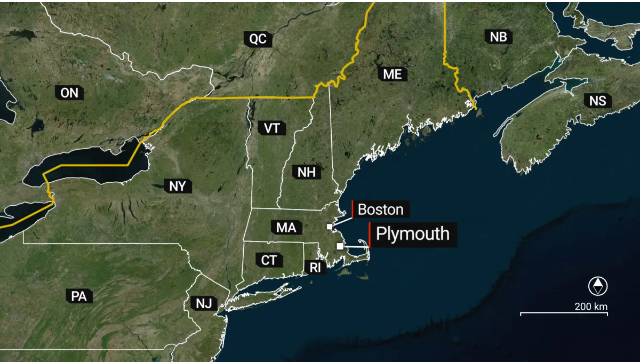
Image Source: Sourced from the Internet
According to Health Canada, eastern equine encephalitis infections occur primarily in the spring and are associated with birds that migrate to northern Canada from the southern U.S. On Aug. 21, Ottawa's public health department issued a warning after reporting that a horse had tested positive for eastern equine encephalitis virus in Ottawa. The department is advising residents to take steps to prevent mosquito bites to reduce the risk of contracting the virus. Typically, eastern equine encephalitis virus is spread between wild birds and mosquitoes, occasionally infecting horses through the bite of an infected mosquito, and only rarely infecting humans.
So what can we do to stay safe? While the risk of contracting eastern equine encephalitis is low, it is critical to take precautions, especially during the peak mosquito activity period of late summer to early fall. For those in urban centers, there may be no need to be overly concerned, as mosquitoes carrying the virus favor swampy environments. For those at risk, the Massachusetts Department of Health recommends scheduling outdoor activities to avoid the dusk-to-dawn period when mosquitoes are most active. Wear long pants, long-sleeved shirts and socks and use mosquito repellents containing DEET, pyrethroids, pikaridin or citronella oil when engaging in outdoor activities. To prevent mosquitoes from entering your home, repair any broken holes in windows and be sure to keep all doors and windows closed. Also, remove standing water around your home to eliminate mosquito breeding grounds.
In this time of global virus infestation, when a variety of viruses such as Monkey Pox and Dengue Fever are sweeping through many parts of the world, coupled with the resurgence of the New Crown Epidemic, and now a rare and deadly virus has swooped into North America, it is important for us to remain vigilant and take proactive precautions to safeguard our own health and that of our families.
-------- END --------
